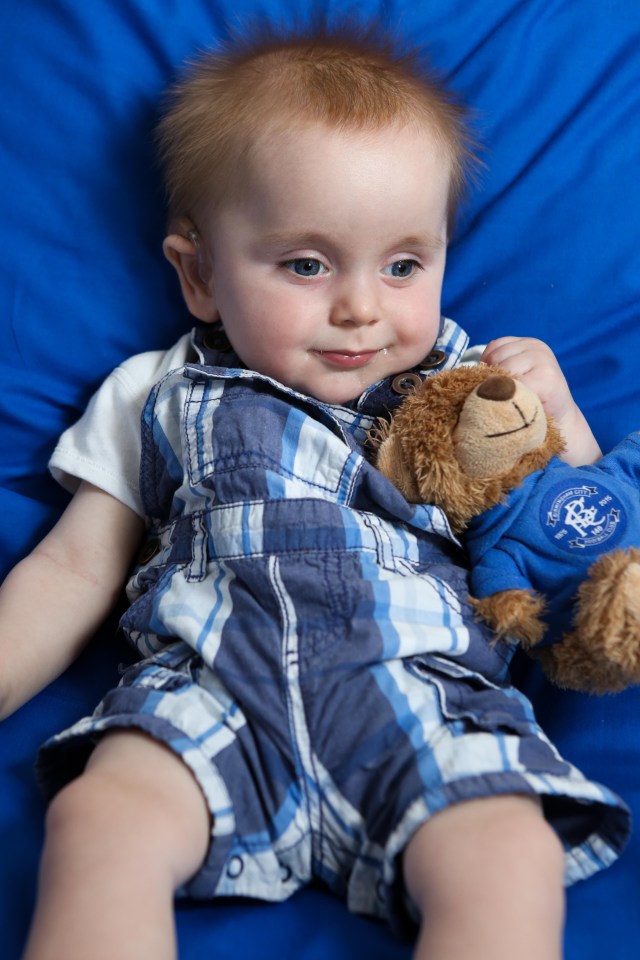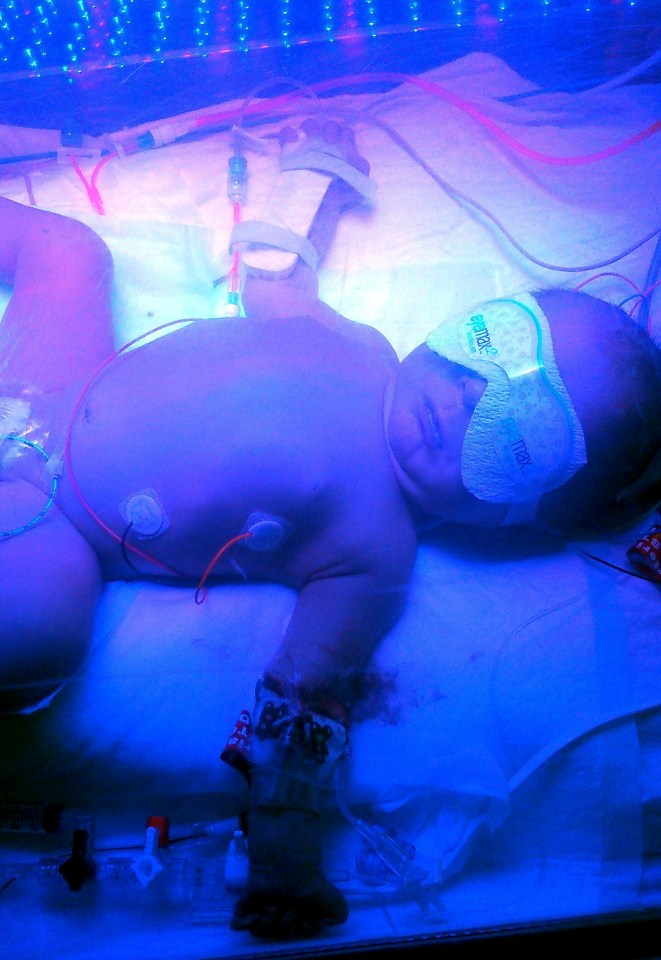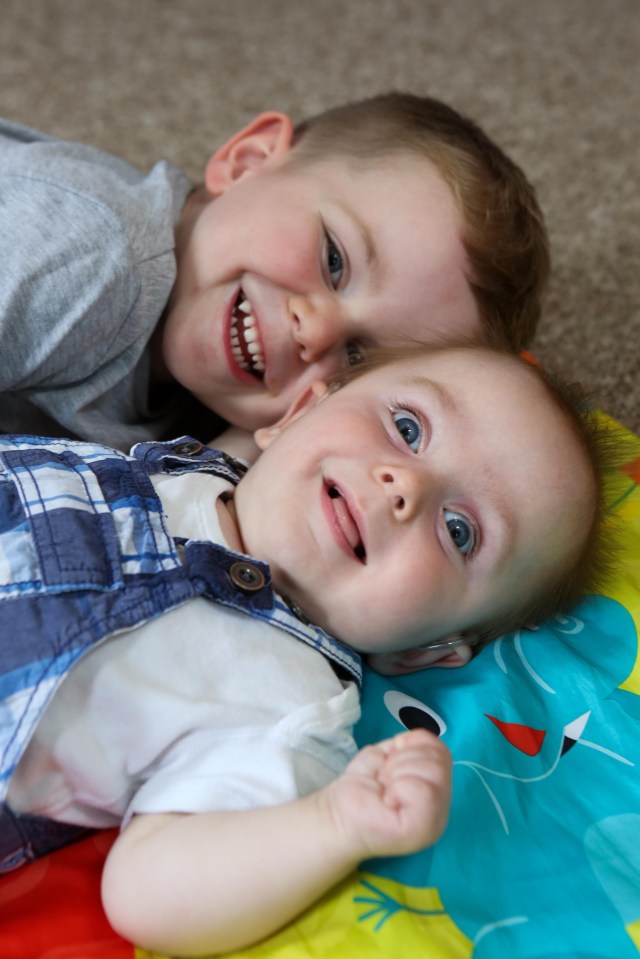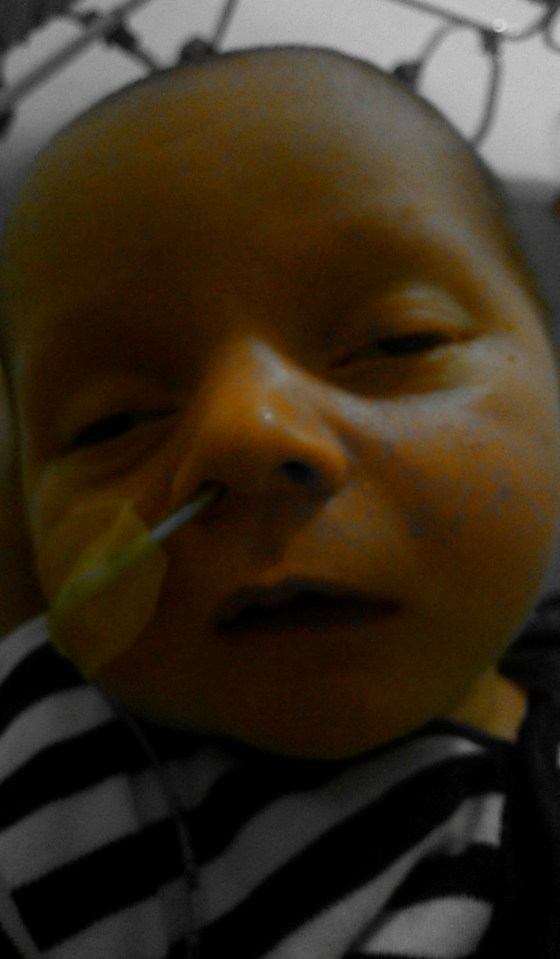Baby boy left brain damaged after bungling docs failed to give £1 jaundice test
Little Brian Griffin was not treated for jaundice fast enough with the baby now suffering serious physical impairments

A LITTLE boy has been left suffering devastating physical impairments after doctors failed to administer a jaundice test that costs less than a pound.
Seven-month-old Brian Griffin cannot see, hear or move properly after he developed jaundice, a common condition for newborns, after being born on December 15 last year.
Father Mark Griffin said it was up to midwives to decide whether a test was needed to determine how serious the baby's jaundice was.
But in a fateful decision, the midwife looking after Brian did not feel that the test, which costs less than a pound, was needed.
He said: "We want people to be aware that jaundice can be dangerous. I'm pretty sure that 60 per cent of babies show signs of it.
"Unfortunately for my son, they decided he didn't need testing.
"People don't realise it can kill and can also cause irreparable brain damage."
Little Brian, who was born in Gloucestershire Royal Hospital, now suffers visual impairments, bilateral hearing loss and cerebral palsy due to brain damage caused by severe jaundice.
The little baby can't even move his legs or lift his head with Mark saying his baby was in constant pain.
RELATED STORIES
Jaundice is a serious medical condition that commonly affects babies.
It causes the skin and whites of eyes to yellow and it caused by an excess of the pigment bilirubin.
Mark that he had now reduced his working hours to help partner Katie Lowe to care for Brian.
CAN JAUNDICE KILL? THE TERRIFYING DANGERS OF THE COMMON NEWBORN CONDITION

It is one of the most common conditions to affect newborns but parents need to be aware of the complications that can come with jaundice.
Jaundice is caused by an increased level of bilirubin in the blood right after birth, causing the baby's skin to turn yellow. Their eye whites can also turn a yellow hue.
The build up is caused when the infant's liver does not work fast enough to keep up with processing the yellow pigment with the condition occurring about two to four days after the birth.
The NHS has estimated it affects six out of every 10 babies, including eight our of ten babies born prematurely.
Normally, most newborns will recover from their jaundice without treatment in about one to two weeks but more severe jaundice may require treatment with phototherapy one of the most common methods.
The treatment is highly effective, using light to help break down the compound in the baby's body.
In more severe cases, an exchange transfusion may be necessary, helping to replace the baby's damaged blood with healthy red blood cells.
But if untreated and permitted to worsen, it can develop into Kernicterus.
The condition can lead to a number of severe long-term health impacts including learning disabilities and ADHD to more severe intellectual disabilities, cerebral palsy, or death.
This serious complication sees the excess bilirubin damaging the brain or central nervous system.
It is a rare condition, which affects less than one in every 100,000 babies.
The Northway family, which also includes their two-year-old Arthur, is now investigating their options to get financial compensation to help care for their youngest son.
He warned other parents to be conscious of how serious jaundice could be, saying his little boy's condition was "100 per cent preventable".
But the family stressed that they had received a huge amount of support and felt that the NHS was a wonderful organisation.
The trust said: This is a tragic incident and our deepest sympathies are with the family who have had to come to terms with such a life changing event.
"Whilst we did follow the correct NICE guidance at the time of birth, we do also acknowledge that an opportunity was missed to treat baby Brian for jaundice. We apologise unreservedly to the family for this."
An investigation has now been launched with policies under review.
We pay for your stories! Do you have a story for The Sun Online news team? Email us at [email protected] or call 0207 782 4368












